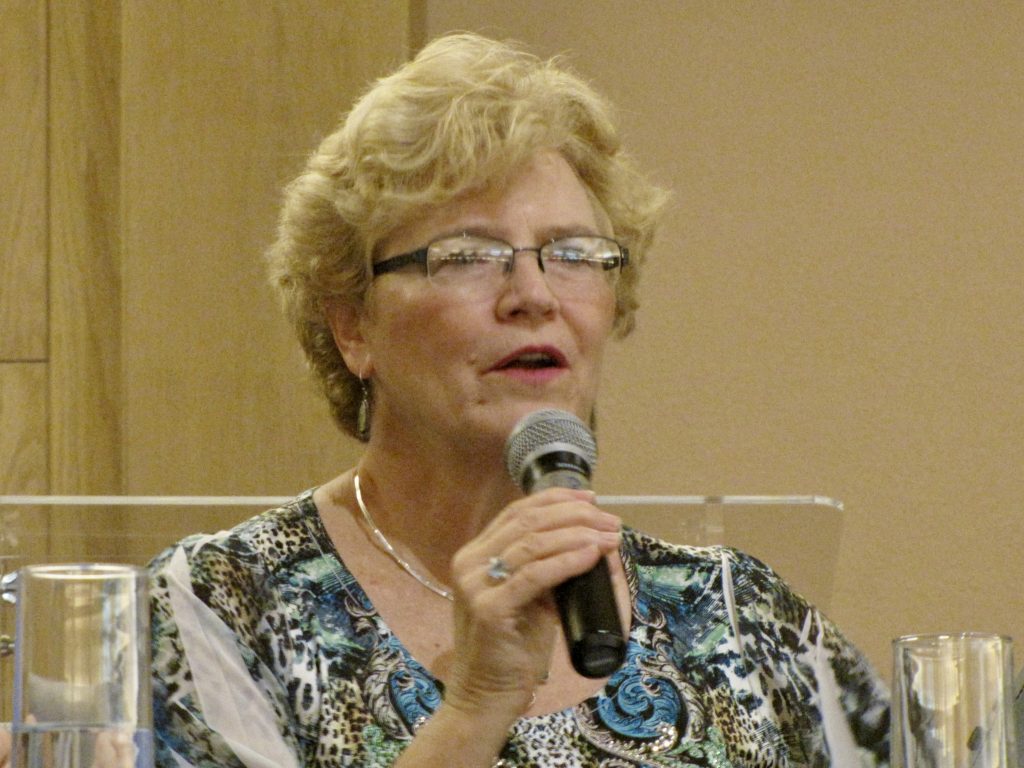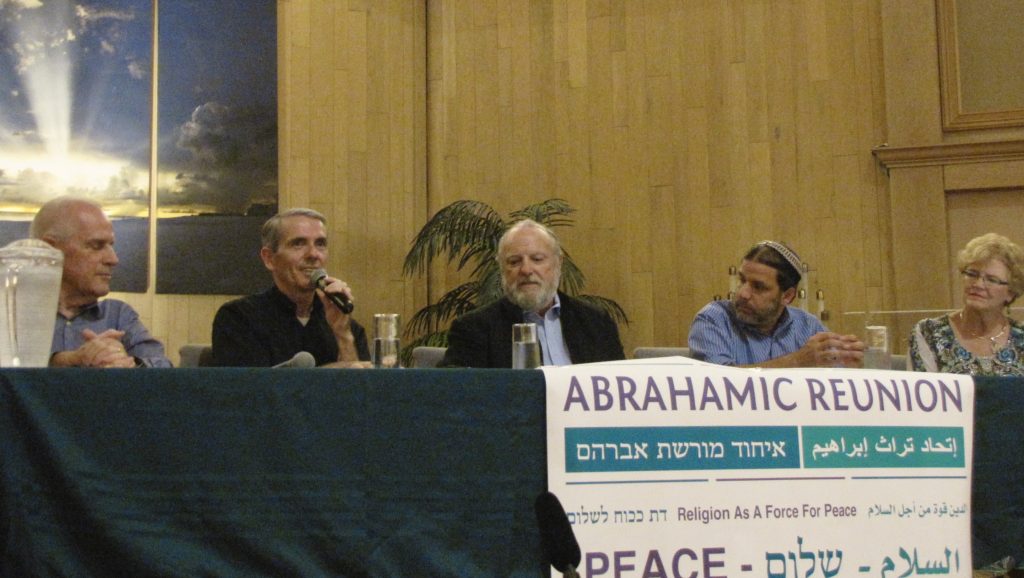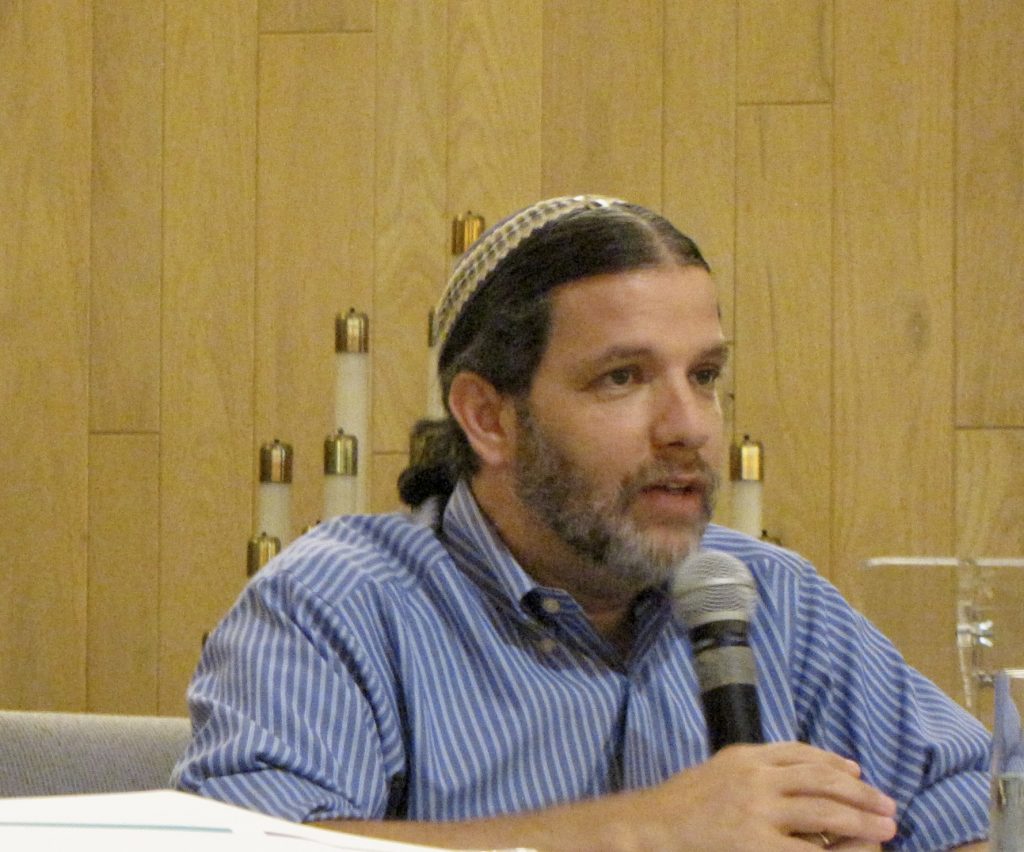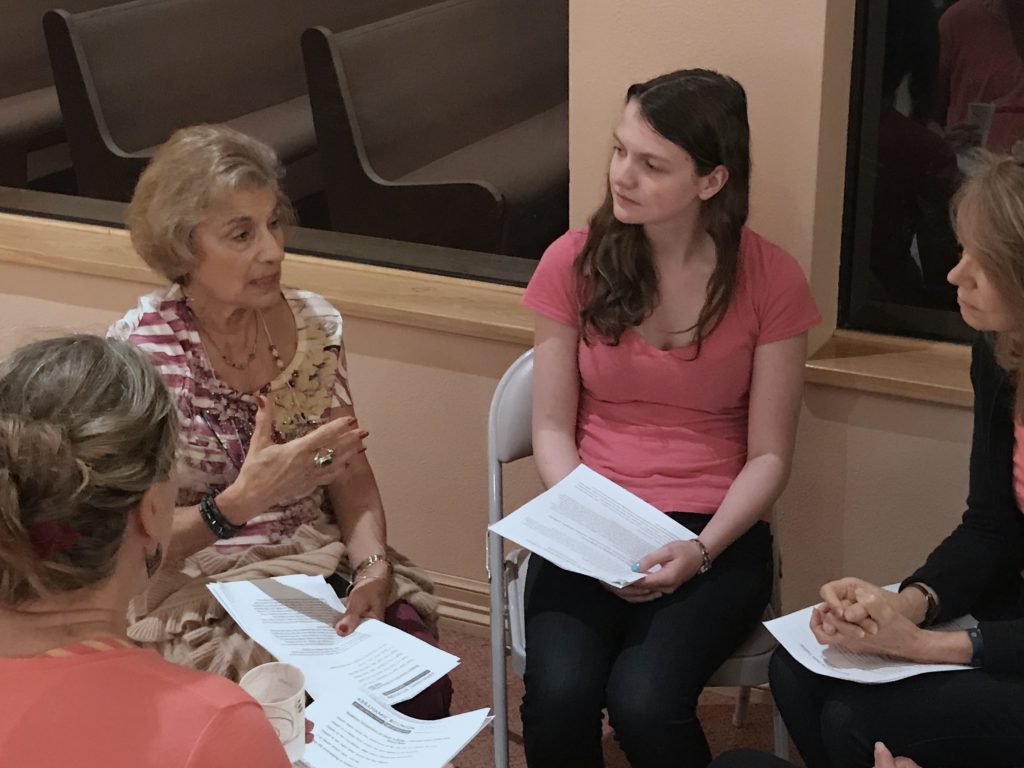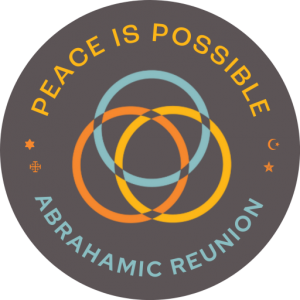Nearly 40 people gathered together on Tuesday, November 14, for an interfaith panel and evening of discussion on the topic “Religious Perspectives on Death and Dying.” The event was hosted by Unity of Sarasota, from 7-9 pm. Reverend Elizabeth Thompson, of Unity, opened the event by introducing the Abrahamic Reunion, then offered an opening prayer. She reminded everyone of the evening’s purpose, saying, “Love is our common language and we are here to serve a greater vision of what it means to be in fellowship with each other.”
Rev. Chris Miller thanked Reverend Elizabeth for hosting the event. He described Abrahamic Reunion meetings as a place “where we can meet on common ground: the ground of the spirit, and the ground of the heart.” He then introduced the five religious leaders on the panel: Bob Griffiths, Father Joe Clifford, Murshid David Less, Rabbi Michael Werbow, and Reverend Elizabeth Thompson.
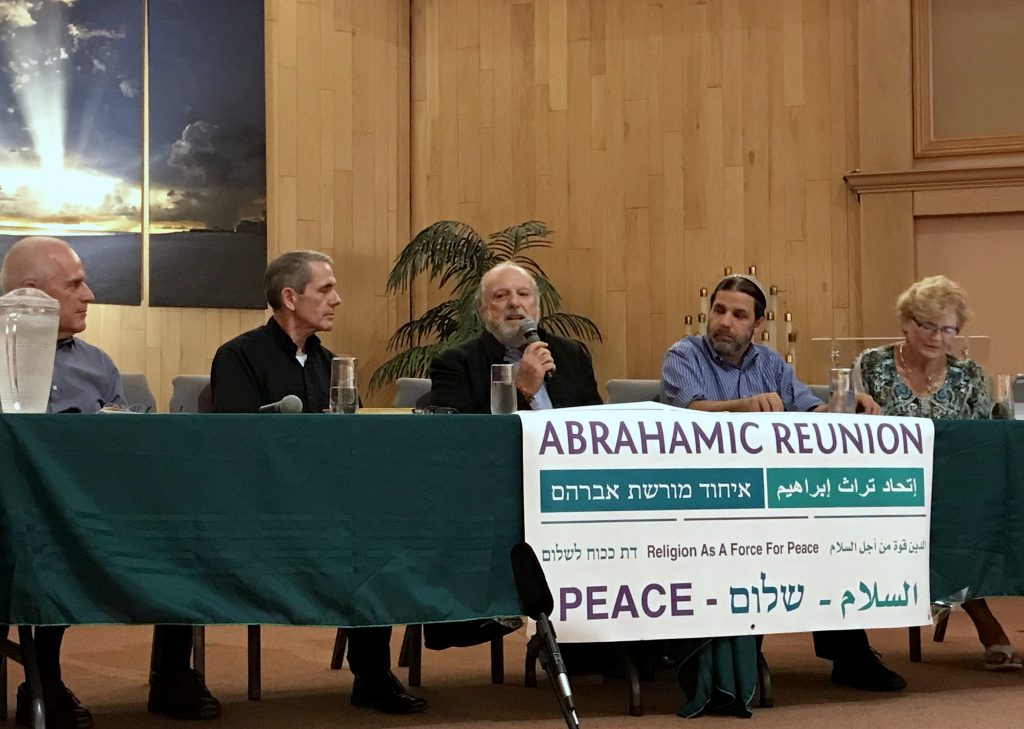
The panelists, from left: Bob Griffiths, Father Joe Clifford, Murshid David Less, Rabbi Michael Werbow, Rev. Elizabeth Thompson
Bob Griffiths spoke first. He explained that while he himself is Episcopalian, as an hospice chaplain, he ministers to people of all different faiths. He says that almost everyone he ministers to, of any faith, has a belief in the afterlife. “When I ask them, ‘Are you afraid of being dead, or are you afraid of dying?’, The answer almost unvaryingly is dying.” They aren’t afraid of being dead, because they believe there is something that comes after death. They may have different ideas of what that looks like, but the idea of an afterlife is shared among religions.
Father Joe Clifford then spoke about the wake, or vigil for the deceased. It is the first step in Catholic funeral rights, followed by the funeral mass and burial. He explained that the wake begins before death, saying, “the wake begins when we become aware of our loved one’s passing; that their passing is imminent.” So we may enter into the wake years, or just days before the passing of the person. According to Father Joe, “we enter into it mindfully,” receiving whatever emotions come with it, whether sadness, anger, anxiety, or something else.
Father Joe also lamented the place death is given in our society, remembering wakes and funerals in his native Ireland where the family would wash their deceased loved one’s body by hand – now, he pointed out, most people are less present throughout the dying process, and want someone else to fix up the body, dress it up nicely, and put it in a coffin for them, holding death at arms length. It is by embracing death that we are able to embrace life itself, he affirmed, referring to the Catholic wedding vows – “In good times and hard times, for richer or poorer, in health and sickness, in life and in death.”
“The soul has no beginning and no end,”David Less said, sharing from the Sufi perspective. He went on to share about his experiences in India and burial rites in Hinduism. He explained that many people go to the city Varanasi, on the Ganges river, to die. In Hinduism, “if you go there and die, get cremated there… and your ashes are put in the river, your soul is totally free.” He shared a story about witnessing that ceremony. Then he read a selection of Sufi teachings, including “It is death which dies, not life.” He explained that in Sufism, the mind lives on after the body.
Rabbi Michael Werbow pointed out the similarity between Sufism and Judaism with regards to the soul, because Judaism also holds that the soul is eternal. “The soul has no beginning, the soul has no end. And in a sense it’s on loan to us during this time that we’re here on earth.” He also talked about how the soul starts off pure, but because of our imperfections, we must ask for forgiveness in order to clean the soul from the “shmutz of life”. He shared the story of Rabbi Eliezer’s teaching: “‘Repent one day before your death’, the Rabbi taught. His students asked him ‘Does one know the day of one’s death?’ ‘That is all the more reason to repent today, lest one die tomorrow. And therefore all one’s days shall be filled with repentance.'” He further shared how even right after the forgiveness granted during Jewish High Holy Days, directly after another prayer of repentance is offered, to demonstrate that even in that time, by way of an inappropriate thought, word, glance, or deed, repentance may once again be gained.
Finally, Reverend Elizabeth Thompson explained that at Unity, they don’t call it “death,” they call it “transition”, meaning transition into a new phase of living. Shen further shared that in a way, it is a death, because it is the “death of feeling separate” from the divine. In helping people that are transitioning, she said she sees herself as “a midwife into their next adventure. I am being a part of their birth process into the next realm.”
Once each faith leader had spoken, there was a brief Q&A. One man asked how the other panelists felt about the idea of death as a “transition.” David Less explained that in Sufism, they use a word that means “marriage,” and the idea is that death is a marriage between this reality and the next one. So in a way it is also a type of transition.
Following the Q&A, people split into small groups of for deeper discussion and to get to know the perspectives of people from other congregations and faith communities. After a while, everyone came together and shared what their group had discussed. Each group had taken the discussion in different directions and had unique insights to contribute.
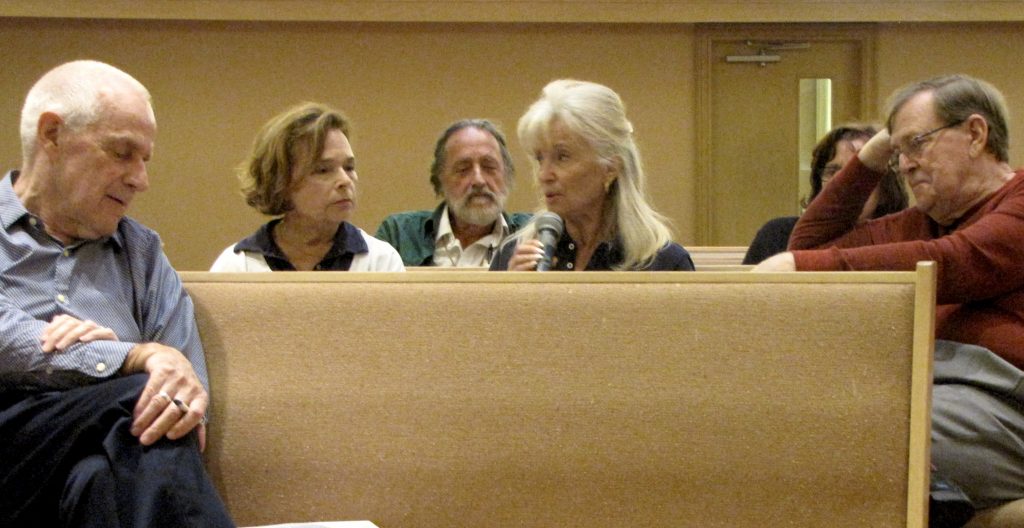
Panelist Bob Griffiths, left, listens as a representative of one of the groups shares what they discussed
The night ended with everyone holding hands in a circle and praying together for peace and connection throughout the planet. Many people stayed after the event for refreshments and further discussion on the topic of death and dying.
A video of the panel discussion will be available soon for viewing.

